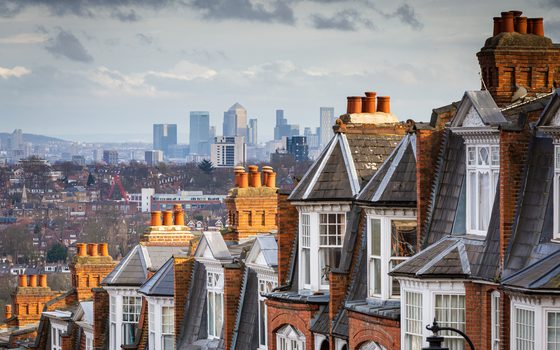People-powered housing: is it the answer to our housing crisis?
The view from Birmingham
23 February 2018
Birmingham is the UK’s second largest city. It’s currently home to over 1.1million people and the population there is growing fast — between 2001 – 2011 the city grew by 10%. When you add to that the high levels of homelessness and a shortage of council housing, it’s plain to see that the housing crisis in Birmingham is only set to get worse.
Like cities all across the country, Birmingham isn’t building enough affordable homes. In recent years, planners have focused on redeveloping the city centre with the aim of attracting more corporations into Birmingham, at the expense of building much needed affordable housing to replenish its depleting stock. In 2015 Birmingham sold more than twice as many council houses as it was building — that’s despite the councils own assessment that identified 38% of the city’s overall housing requirement is for affordable housing.
Decades of central government’s neglect of housing policy, a chronic lack of funding for social housing and gentrification have meant that Birmingham is becoming a harder place to live for low income people and families. In central areas like Aston and Nechells, rent and house prices are increasing: residents are living in overcrowded homes and flats and paying through the nose to do so.
Residents are living in overcrowded homes and flats and paying through the nose to do so.
The housing crisis in Birmingham is underpinned by a lack of land for affordable housing in the city, and this is only exacerbated by the Government’s current policy of selling off public land to plug holes in the budgets for public services. Last year NEF research found scores of sites for sale in Birmingham, offered-up for sale by the Department for Health and other public bodies, as well as the Local Authority.
Sharing skills and knowledge at a city level
In August 2017 we began working with people in Birmingham to help them tackle these housing problems, sharing the knowledge, skills and connections necessary to take back control of housing in the city. Since then, NEF Organiser Becki has helped establish a core group of 20 community groups, and run a series of workshops with them, exploring examples of successful community led housing schemes in the area. The group now works independently to connect housing and planning experts with local groups who are working on the ground to buy and develop affordable housing in their neighbourhoods.
Enabling action at the grassroots
In Aston, Nechells and the Frankley and Northfield areas, we’ve helped individuals set up groups with their friends, family and neighbours to start building a community-led response to the housing crisis. We are supporting them to develop relationships with housing and planning experts in their city and beyond.
We are supporting them to develop relationships with housing and planning experts in their city and beyond.
Frankley and Northfield
Frankley and Northfield are two of the most deprived areas in Birmingham and suffer from a shortage of decent homes — as well as the increasing risk of gentrification affecting the area.
We worked with Marion and Roger — a couple who are active in their local church community — to identify the key housing problems in their area. As well as linking up with community leaders, we supported Marion to organise a public meeting that helped residents explore local issues with housing and what a community housing alternative might look like. They’re planning to meet again at the end of the month.
Aston (AsNe)
After attending the first public meeting and workshop sessions held by NEF, Bright, a local resident in Aston, started speaking to people in his local community about organising a community-led response to housing issues in their area.
We supported Bright and his brother-in-law to establish a co-op and put them in touch with the National Community Land Trust Network . There’s a strong chance now that they’ll receive funding to develop the technical knowledge they need to put together a proper plan. Right now, they’re planning a community walk to identify a site for their development.
People-powered housing
The work of these groups, and others like them, clearly shows that when communities come together, they can kick-start the demand that’s necessary to create a better housing system locally — even within a hostile national political environment.
In under a year, these groups have achieved a great deal and have grown the community-led housing movement in Birmingham. Both of these groups are only at the beginning of their journey, but we’ll be with them at each step of the way. We’ll be sharing our skills, time, knowledge and infrastructure in Birmingham to help these groups achieve their goal of getting a genuinely affordable, community-driven housing scheme off the ground, and provide a people-powered response to the city’s housing crisis.
Topics Housing & land






